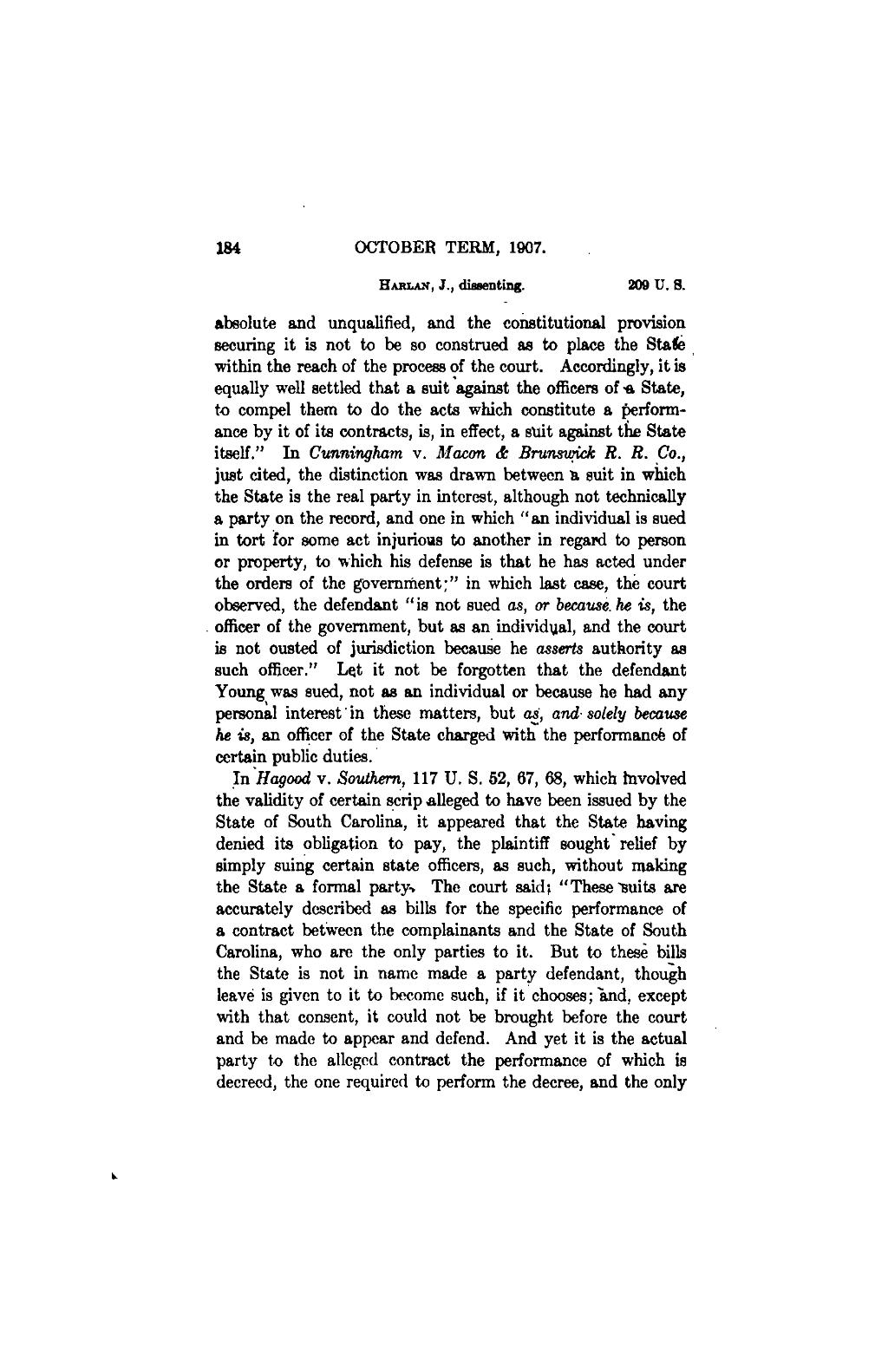184 OCTOBER TERM, 1007. H?, J., dissenting. 209 U. S. absolute and unqualified, and the coastitutional provision securing it is not to be so construed as to place the Stage within the reach of the process o.f the court. Accordingly, it is equally well settled that a suit against the officers of ? State, to compel them to do the acts which constitute a ?erform- ance by it of its contracts, is, in effect, a s?it against tl? State itself." In C?nniaflham v. ?l?aco? de B?n.vuy?.' R. R. Co., just cited, the distinction was drawn between a suit in w?ieh the State is the real psr?y in interest, although not technically a party on the record, and one in which "an individuai is sued in tor? ?or some act injurious to another in rega?i to person or property, to ?-hich his defense is that he haa act? under the orders of the government;" in which last case, th? cour? observed, the defendant "is not sued as, or because. he is, the �officer of the government, but as an individ?lai, and the court is not ousted of jurisdiction because he asser? authority as such officer."Let it not be forgotten that the defendant Young, was sued, not as an individual or because he had any personal interest'in these matters, but ?, and. solely bemloe he is, an officer of the State charged with the performanc? of certain public duties. � In Hagood v. ?%vdhern, 117 U. 8. $?, 67, 68, which t'avolved the validity of certain ?crip alieged to have been issued by the State of Sou?h Carolina, it appeared that the State having denied its obligation to pay, the plaintiff sought' relief by simply suing certain state officers, as such, without making the State a formal party, The court saidl "Theso?uits are accurately described as bills for the specific performance of a contract between the complainants and the State of South Carolina, who are the only parties to it. But to thes? bills the State is not in name made s party defendant, though leav6 is given to k to become such, if it chooses; ?md, except with that consent, ig could not be brought before the court and be made to appear and defend. And yet it is the actual party to the alleged contract the performance of which is decreed, the one required to perform ?he decree, and the only
�
